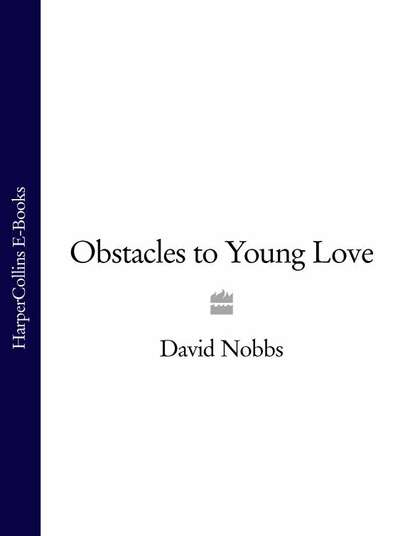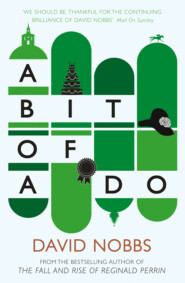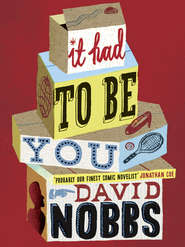По всем вопросам обращайтесь на: info@litportal.ru
(©) 2003-2025.
✖
Obstacles to Young Love
Автор
Год написания книги
2018
Настройки чтения
Размер шрифта
Высота строк
Поля
‘Just like real live birds, ducks, geese?’
‘Yes. Exactly.’
‘Oh, dear.’
Timothy feels humiliated, but Antoine continues.
‘When we get to know you all, Clive and I will take you under our wing. We’ll go to exhibitions. We’ll show you true art. Good art. Great art. Oh, and bad art. That’s always fun too.’
Timothy finds the prospect daunting. He isn’t ready for this. He’d almost prefer humiliation. It’s easier to deal with. Less emotionally demanding. He finds himself staring at a painting on the wall above the hostess trolley. It shows a ketch beating up the Deben towards a stormy sunset.
Antoine knows what he is thinking.
‘No,’ he says. ‘Not good.’
‘Bad?’ ventures Timothy.
‘No. Not bad. But what use is “not bad”? Not bad is no use. Why are all the paintings in this house pictures of boats?’
‘Naomi’s father sails.’
‘And her mother?’
‘No.’
‘Oh. That’s bad.’
‘Well, I think she gets sick. Very sick.’
‘No, no. I don’t mean it’s bad that she doesn’t sail. I mean it’s bad that all the pictures are of boats when she doesn’t sail.’
The conversation stops there. Antoine is perfectly happy for it to stop but Timothy thinks that it’s entirely his fault.
Now Penny calls across the table to Antoine and asks him questions about France, about his background, about his painting. Then she looks across at her husband, seeking help.
William, who has been staring wistfully at the schooner that is bowling along up the Solent above the bulky Victorian sideboard handed down from his family and impossible to sell until they’re all dead, gives Penny a slight nod, turns to Antoine, and says, ‘I believe quite a large proportion of people in French cities live in flats and apartments.’
‘Yes,’ says Antoine, as if it has been just the question he was expecting. ‘Probably more than here, I think. We do not all see the need to own a house. We are not quite such a nation of gardeners.’
‘Yes. So I’ve heard,’ says William. ‘I sometimes think only our gardens save us from mass outbreaks of insanity. You must have other escapes.’
Antoine doesn’t rise to this.
‘How did you and Clive meet?’ asks Penny brightly, oh, so brightly.
‘On the train,’ says Clive. ‘I was going back to college. I’d popped up to Edinburgh to see an exhibition. And there was this impossibly handsome man strolling sexily down the carriage. Naturally I followed him.’
There is a brief silence. Naomi cannot believe how bravely her parents are taking this. If only she’d known, maybe she and Timothy could have been honest with them. Too late now.
‘Your food is very different from ours, isn’t it?’ continues Penny remorselessly.
‘They eat frogs’ legs,’ says Isobel savagely. It is the only thing she says during the entire meal.
‘We eat all sorts of other things as well,’ says Antoine. ‘You should try our cassoulet.’
Poor Timothy. He can think of nothing to say. He assumes that what he is hearing is sparkling repartee. He hasn’t the experience to realise that this is one of the most stilted conversations he’ll ever hear. He feels out of his depth. He wants to talk to Naomi, but she is sailing down memory lane with her brothers and he has the feeling that she has forgotten she has a fiancé. And all the time his present sits there, in the lounge, waiting. He clings to the thought that, because it has been so wretchedly tied up, it will be all the more of a sensation when it is revealed. But he is not entirely convinced. How slowly time passes. That wretched ketch seems to have been sailing towards that bloody sunset (he apologises to God for his language) for hours, and they still aren’t onto the trifle.
Julian gets to his feet.
‘We must have a toast,’ he announces. ‘Is there any more wine? Everyone must have wine.’
‘Oh, sorry,’ says William. ‘We aren’t wine people, I’m afraid.’
He goes out and comes back with another, differently shaped bottle.
‘It’s not the same, I’m afraid,’ he says.
‘That’s a relief,’ says Julian.
‘Oh, Lord, wasn’t it good? Sorry. Maybe this’ll be better. Not doing my job, eh? Out of touch.’
Julian opens the bottle and makes no comment.
Antoine says. ‘I’d be on safer ground painting black towers.’
‘Right,’ says Julian. ‘All got a drop?’
‘Timothy hasn’t,’ says Antoine.
‘I don’t drink,’ protests Timothy.
‘Got to have a drop to toast our Naomi,’ insists Clive.
Antoine fills a quarter of a glass with wine and hands it to Timothy.
‘Right. The toast. To my dear sister on her eighteenth birthday. How pretty you are, Naomi. Hasn’t she grown pretty, Clive?’
‘Every inch a Juliet.’
‘To our lovely sister Naomi. Happy birthday,’ say the brothers in unison.
‘To Naomi,’ they all cry, raising their glasses.
Timothy takes a sip and almost chokes, but it doesn’t taste too bad, it’s reasonably sweet and warm, he can’t think what all the fuss is about.
Clive leads them into singing ‘Happy Birthday to You’.
William moves his lips but he is so embarrassed that no sounds emerge, Antoine doesn’t know the words, Penny sings too loudly to drown the silence, Julian growls like a stag in rut, Isobel performs as if she’s in an opera but goes too fast and gets ahead of everybody else, Teresa smiles blankly, coolly, beakily, and Timothy succumbs to his choking fit and turns purple. It cannot by any stretch of the imagination be described as a musical triumph, and, after they have all sat down, there is another moment of silence.











